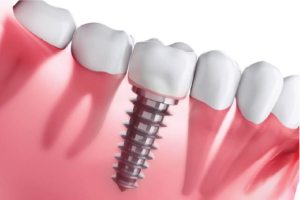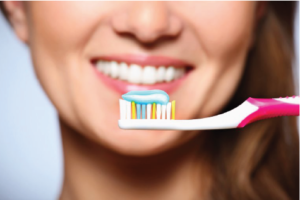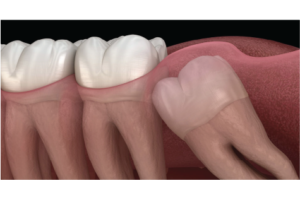WHAT TO DO AFTER A TOOTH EXTRACTION?

There are several reasons why your dentist would advise tooth extraction. Teeth may be extracted due to decay, advanced gum disease, crowding or damage due to trauma. When you have a tooth removed, aftercare is just as important as the procedure itself. The following tips will help you minimize discomfort, reduce the risk of infection and help recover more quickly.
Don’t disturb the area of extraction:
It is very important for the first few days, especially the first 24 hours, to allow your body to form a good blood clot and start the healing process. Swishing, sucking through a straw and smoking can all disturb the clot. Keep away anything sharp from getting into the wound. Chew on the other side for at least 24 hours.
Bleeding:
You could be biting on a gauze pad to control bleeding when you leave the dental clinic. Maintain slight pressure for at least 30 minutes on this gauze. If you feel it is still bleeding, you can bite on one more gauze or a tea bag for another 30 minutes. Pink or blood-tinged saliva may be seen after the surgery and does not indicate a problem. Do not spit it out as this could cause more bleeding.
Pain:
Following the extraction, some discomfort is normal. Take the prescribed pain medications before the effect of anaesthesia wears off. Taking the medications after eating will help reduce stomach upset.
Numbness:
Local anaesthetics will make the area of extraction numb for a few hours after you leave your dental office. Do not bite, chew, or scratch the numb area. The extraction occasionally causes residual numbness or tingling sensation for six weeks or more. In such cases, report to your dentist.
Swelling:
Applying an ice bag or a cold, moist cloth on facial areas over the extraction site will help minimize swelling. Your dentist may give you specific instructions on how long and how often to use cold compress.
Smoking:
Following tooth extraction, smoking should be avoided. Healing and success of the procedure will be significantly reduced by the chemical compounds in the smoke. The suction created by inhaling cigarettes can also dislodge the clot. Smokers are at higher risk of developing a painful condition called dry socket.
Brushing:
Don’t brush your teeth for the rest of the day. However, you should brush and floss the other teeth from the next day, avoiding the area of extraction for three days.
Rinsing:
Avoid rinsing or swishing for 24 hours after extraction. Rinsing vigorously can dislodge the blood clot. After 24 hours, gently rinse with saltwater solution (1/2 teaspoon salt + 8 ounces of warm water) for 1 week.
Diet:
Avoid hot foods or beverages for 24 hours. The first two days, eat soft food. Maintain a healthy, balanced diet. Return to regular meals as soon as you can. Drink a lot of water.
Activity:
Rest and avoid any strenuous activity for the rest of the day.
Antibiotics:
Take antibiotics as directed by your dentist. A few antibiotics reduce the contraceptive effect of birth control pills. Use alternate birth control methods or speak with your gynaecologist if you have concerns.
Follow up appointments:
You might need to get back to your dentist to remove the stitches, or just for a quick follow up on the healing.
When to call your dentist:
Tell your dentist if you have uncontrollable pain, excessive bleeding, fever, reaction to any medicines or excessive warm swelling after the procedure.
Following these instructions very closely will help you be comfortable and promote uneventful healing. Over time, having a missing tooth may cause the remaining teeth to move, changing your bite, and making it hard to chew. For this reason, your dentist may recommend that you replace the missing tooth or teeth with an implant, a fixed bridge or a denture.
Why Your Dentist Would Recommend BRACES Even Though You May Have Straight Teeth?
Why Your Dentist Would Recommend BRACES Even Though You May...
Read MoreWhy is dental hygiene important during covid-19 pandemic
WHY IS DENTAL HYGIENE IMPORTANT DURING COVID-19 PANDEMIC? Hygiene is...
Read MoreHow to take care of your dental implants
How to take care of your dental implants? Dental implants...
Read MoreSimple brushing mistakes to avoid
SIMPLE TOOTH BRUSHING MISTAKES TO AVOID Maintaining good oral health...
Read MoreBe wise about your wisdom teeth
Be wise about your wisdom teeth One major dental milestone...
Read More
Dr. Paresh Lotlekar is a leading dental practitioner specialising in Periodontology & Oral implantology and the founder of STUDIO32 (studio32india.com), a chain of super speciality dental clinics in Goa.





